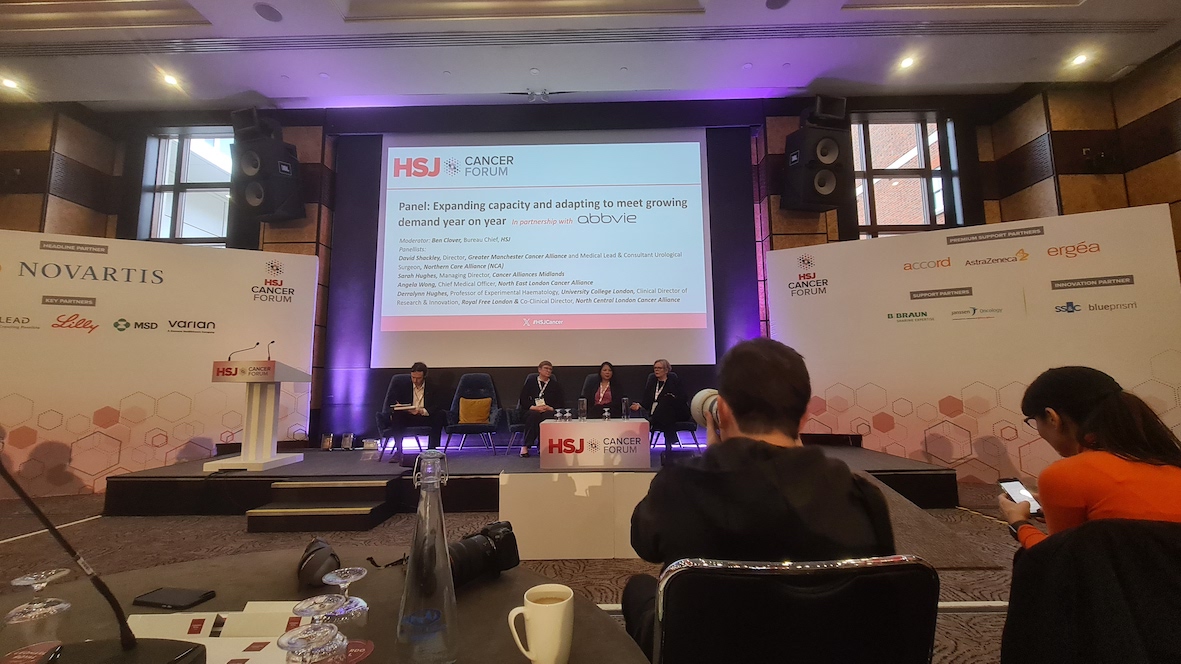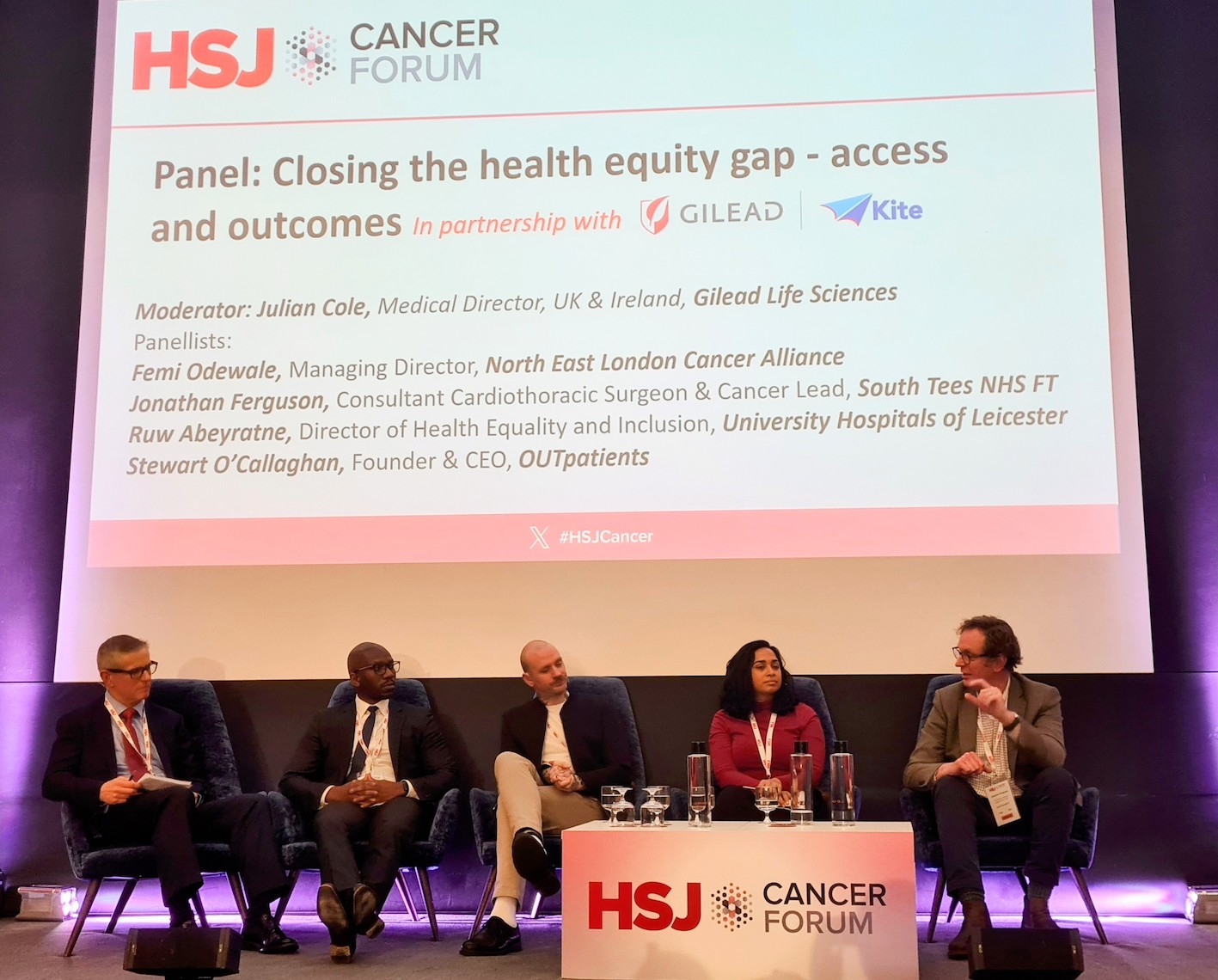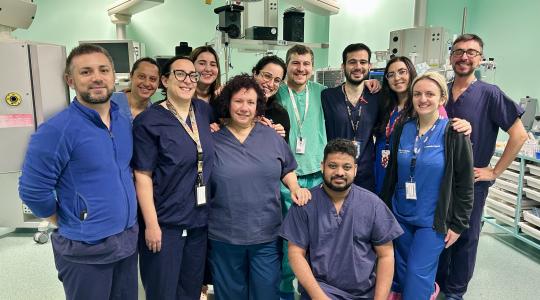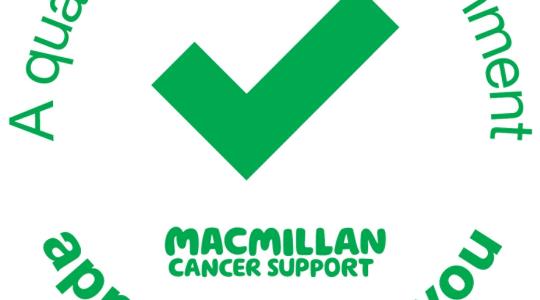HSJ Cancer Forum shines spotlight on the great work of cancer alliances
At the annual HSJ Cancer Forum, which took place on Wednesday 13 March at the Leonardo Royal Hotel in Tower Hill, key leaders in cancer care from across the country got together to share innovation, ideas and experiences to help continue the progress being made in improving cancer care in England.
Ed Rose, Director of Elective, Cancer and Diagnostics for NHS England, provided an inspiring and uplifting key note speech. He spoke positively about the fantastic progress being made, in particular with the Targeted Lung Health Check Programme, which is already having a big impact on the national early diagnosis target. As a reminder, the target is that by 2028, 75% of cancers will be diagnosed at stage 1 or 2, when it is easier to treat.
At the same time, Ed was realistic and didn’t shy away from the challenges we are facing and the work still to be done. However, he recognised the support that all the cancer alliances are providing and the positive impact that they are having on transforming and improving cancer services at a local level.
Key points he raised were:
- Drop in backlog nationally of 11.8% in 2022-2023, the first drop in the backlog since the pandemic
- Overall backlog nationally now at 17,000 against a target of 18,755
- Set to achieve the Faster Diagnosis Standard of 75% in February, ahead of the target date of March
- The tiering system for trusts has reduced variation from the best performing to the worst performing from 95% to 20%, showing that the system is working.
The slides from his talk can be downloaded from our webpage.
Expanding capacity and adapting to meet growing demand year on year
Dr Angela Wong, Chief Medical Officer for North East London Cancer Alliance featured as a guest speaker on the panel to talk about boosting diagnostic capacity. She talked about the innovation in north east London, referencing the Mile End Early Diagnosis Centre, new MRI suite, supporting the workforce including training, and reducing inequalities.
This prompted positive reactions from the audience, including this post on X:
https://twitter.com/cheamfields/status/1767864004871946644
“Great hearing from CMO #AngelaWong @CancerNel & investment in workforce 2 drive both retention & work on tackling health inequalities. Proven approaches that can be adapted & adopted in support of better outcomes for all.”
As a result of this session, a number of different partners approached Angela and the team during the networking break to talk about sharing lessons learned and joint working.
Angela said “Although it was a little daunting to be seated on stage in front of hundreds of your peers with questions put to you, it was an exciting and worthwhile experience.
“The value of doing this was immediately clear, with many people getting in touch directly after with ideas and opportunities for future partnerships and innovation around diagnostics. It’s really important we make time for key events like these, which bring together so many leaders and wide-ranging experiences when it comes to improving cancer care.”

Closing the health equity gap
Femi Odewale, Managing Director for North East London Cancer Alliance, joined Stewart O’Callaghan, Founder and CEO of OUTPatients on stage for a session which talked about ways to help tackle inequalities in cancer care in England.
Femi and Stewart both spoke passionately about this, including sharing a best practice approach for engaging with communities which was the ‘Best For My Chest Campaign’, delivered in partnership between North East London Cancer Alliance and OutPatients.
Key to the success of this campaign was working with the LGBTQ+ community from the very start of the campaign and right the way through, even involving volunteers in the campaign posters and videos. Ramses, one of the volunteers, explains what this meant to the community in a powerful testimonial.
Femi also spoke of the importance of proactively going out to see different communities in places where they feel comfortable, such as a local mosque or community centre, as well as the need to start conversations early in schools. He raised important points about the need to focus on local dialects in different languages, over and above standard translations of materials, which was well received by the chair and referenced in the summary at the end.
Femi said: “We had an insightful day at the HSJ Cancer Forum, where we delved into strategies for bridging the health equity gap. I was grateful for the shared experiences and robust discussions with esteemed colleagues. Together, we’re forging paths to accessible healthcare in north east London.”






